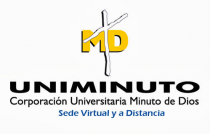UofSC opens Digital Transformation Lab; announces new research partnerships
COLOMBIA, S.C., Sept. 27, 2018 /PRNewswire/ -- The University of South Carolina announced Thursday (Sept. 27) several expansions of partnerships with corporate giants IBM, Samsung, Siemens and Yaskawa, including a partnership agreement with IBM for a new Industrial Internet of Things (IIoT) Research Lab.
The announcements were part of ceremony opening USC's new 15,000 square-foot Digital Transformation Lab, a research showplace where projects with an array of real-world industrial and consumer applications are on display--from robotics, visual inspection, autonomous drones to smart home appliances.
The Internet of Things refers to the interconnectivity of individual systems and devices, including automobiles, appliances and healthcare devices.
"These research partnerships and the new lab are the culmination of years of innovative work by our faculty researchers and the USC Office of Economic Engagement," said USC President Harris Pastides. "Through corporate partnerships, our researchers can bring added value to industrial applications while students work alongside faculty to gain critical exposure to leading edge technologies that make them more employable."
New and expanded partnership announced Thursday include:
-- USC is opening the IIOT Lab in partnership with IBM. Located in the
McNair Aerospace Research Center on Catawba street, the lab will use
cloud-based data to develop a wide range of student learning, teaching,
and research projects. IBM solutions featured at the lab leverage the
IIoT, advanced analytics and AI to reduce operational costs and increase
uptime, bring better products to market faster, and find new business
value across three main asset classes - industrial equipment, buildings
and facilities, and vehicles. USC is currently IBM's only Industrial IoT
university research partner in the United States. "Artificial
Intelligence is critical to making sense of the eighty percent of
unstructured data that will enable people and things to work smarter and
better," said Skip Snyder, vice president and partner of IBM's IoT and
Asset Management Optimization practice. "Together with USC we are
demonstrating to clients how IoT, advanced analytics and AI reduces
operational costs and increases uptime, while introducing students and
faculty to state-of-the-art design and engineering platforms that are
used by leading enterprises globally."
-- Samsung is currently working with USC as part of the Palmetto Consortium
for Home Appliance Innovation, exploring new ways to connect smart home
appliances and expand their capabilities, such as refrigerators that can
alert consumers when food is about to spoil or if a homebound relative
is eating properly. The Digital Transformation Lab will serve as a host
site for the best new advanced appliances under development. Last year,
Samsung opened its new state-of-the-art home appliance manufacturing
plant in Newberry, South Carolina.
-- Siemens technology will be used throughout the Digital Transformation
Lab, including in industrial robotic simulations and predictive
maintenance projects. One project now underway uses Siemens software to
help maximize the reliability of the U.S. Army's Apache helicopter. Last
year, Siemens made an in-kind software technology grant to USC's College
of Engineering and Computing allowing students to gain experience with
software used by more than 140,000 companies in the global manufacturing
industry, including South Carolina's growing aerospace sector.
-- Yaskawa, the worldwide robotics company, will work with USC researcher
to apply artificial intelligence and machine learning to dramatically
improve advanced manufacturing processes, reducing errors and cutting
inspection time and costs. They also will explore the use of robots in
novel areas, such as the development of new pharmaceutical products.
Thursday's announcement was attended by executives from the partner companies, South Carolina Gov. Henry McMaster and state economic development officials. The Digital Transformation Lab, conveniently located near downtown Columbia and USC's campus, is part of USC's expanding Innovista research district. Projects displayed in the lab will highlight for potential customers the benefits or matching university research expertise with the very latest in private-sector technologies.
"South Carolina's manufacturing industry is one of the strongest in the world, with one of the highest rates of manufacturing growth in the country," McMaster said. "Staying on top requires staying smart by investing in partnerships like this one, which demonstrate the strength of collaboration between the private sector and our institutions of higher learning. I congratulate USC and its partners on this cutting-edge new Digital Transformation Lab and look forward to seeing all that will be achieved there. "
Through the Office of Economic Engagement, USC has aggressively sought to forge corporate research partnerships, commercialize technology developed at USC and support startups formed by university researchers. The activities help contribute to the $5.5 billion impact USC has on South Carolina economy each year.
"By creating new research partnerships and building on existing ones, we can infuse even more corporate investment into the Midlands and the state. The students who work on these research projects--whether they are computer scientists, engineers or designers--are well-positioned to find the kind of rewarding, high paying jobs that contribute so much to the state," said Office of Economic Engagement Director Bill Kirkland.
View original content to download multimedia:http://www.prnewswire.com/news-releases/uofsc-opens-digital-transformation-lab-announces-new-research-partnerships-300720433.html
SOURCE University of South Carolina




